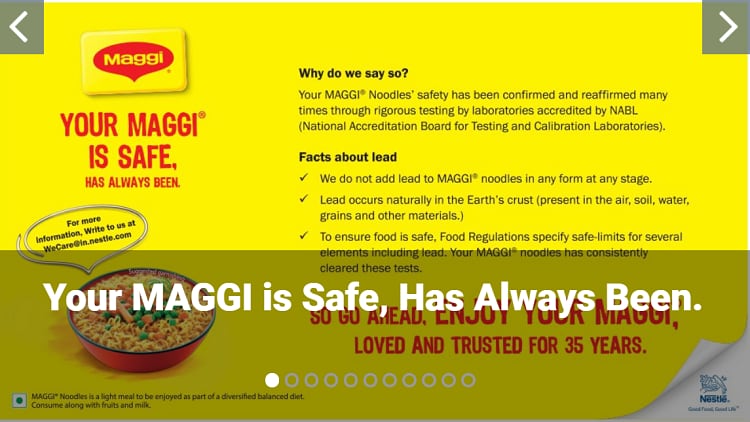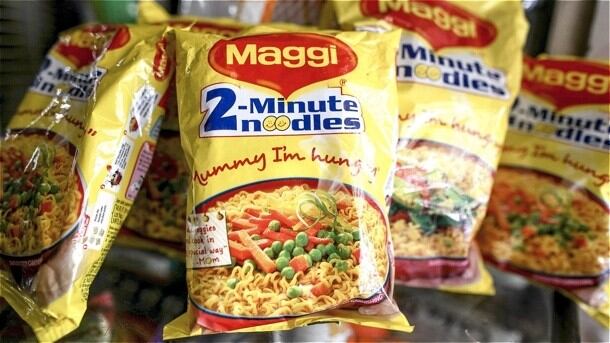With regards to the longstanding claims of lead being present in Maggi noodles, Nestlé India insisted that no lead was added to the noodles in any form at any stage in a notice on its official website since last week.
A Nestlé India spokesperson stressed that the Maggi noodles “has been confirmed and reaffirmed many times through rigorous testing by laboratories accredited by National Accreditation Board for Testing and Calibration Laboratories (NABL).
“To ensure that food is safe, the Food Regulations have specified safe-limits for several elements including lead and Maggi noodles have consistently cleared these tests.
“Lead is a naturally occurring substance, present in the air, soil, water, grains, and other materials.”
The spokesperson also told FoodNavigator-Asia that the firm was “taking proactive steps” in India to reassure consumers the safety of MAGGI. This includes releasing print advertisements in multiple languages in regional and English publications between Jan 5 and 7.
For instance, it had published an advertisement to emphasise that Maggi is safe in local media The Economic Times.
The firm is currently embroiled in a lawsuit against government representative, the National Consumer Disputes Redressal Commission (NCDRC), after the Indian Supreme Court had ordered the latter to revive a class action suit against Nestlé India in January 3, The Economic Times reported.
During the court hearing on January 3, bench head Justice DY Chandrachud said: “Why should Maggi noodles have lead at all? I would be averse to eat Maggi with lead in it. Why should children eat Maggi with lead?”
The Maggi noodles were first found to contain lead higher than permissible level in 2015.
It was then that the NCDRC had filed a class action suit under the Consumer Protection Act against Nestlé India, on the claims that the firm was selling noodles containing excessive lead and monosodium glutamate (MSG).
NCDRC also sought a compensation of INR$6.4bn (US$91.4m).
Maggi noodles were subsequently banned in India as it was found to contain lead that was higher than the permissible level.
It re-entered the market five months later.
Since then, it had bounced back as the category leader with a current market share of nearly 60%.
The saga surrounding Maggi noodles did not only involve the presence of lead.
In November 2017, a batch of Maggi noodles produced in 2015 was found to contain ash content above permissible limits for human consumption.
Developments
Since NCDRC first filed a class action in 2015, Nestlé India had conducted another round of sample testing and requested the court to wait for the results.
Engaged to do the testing, the Central Food Technology Research Institute Laboratory (CFTRI) declared that the lead and MSG levels in Maggi were within permissible limits.
For the present lawsuit, the Supreme Court said it would proceed with the case based on the report done by CFTRI and no further testing would be allowed, the Business Standard reported.
“(The CFTRI) Reports show lead below detectable limits in some samples and only minuscule quantities of lead in others,” Nestlé India’s lawyer Rajesh Batra was quoted to have said in the court during the ongoing lawsuit.




